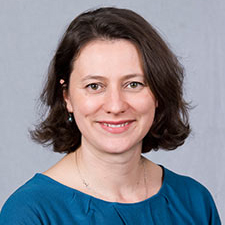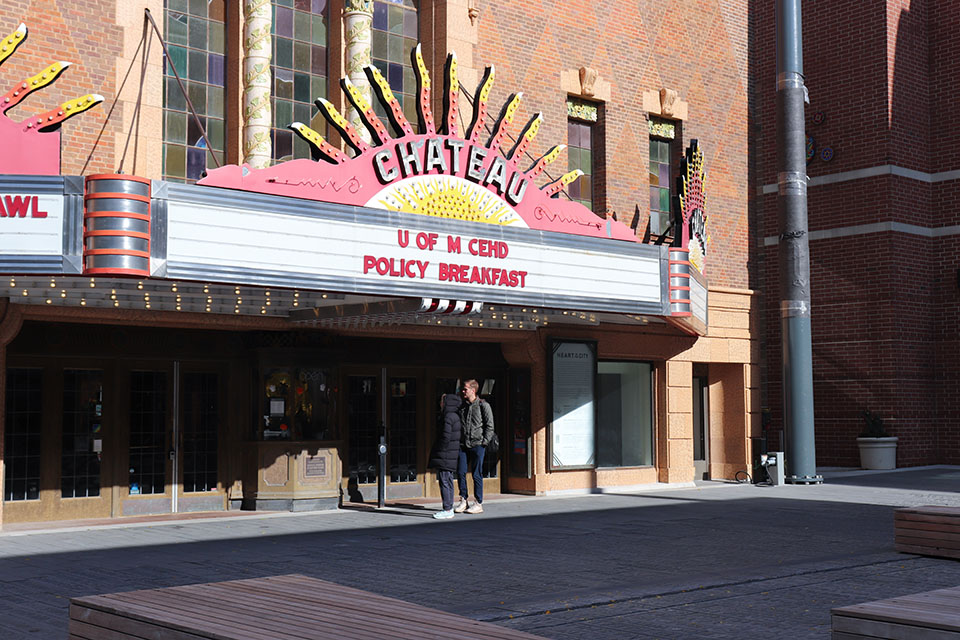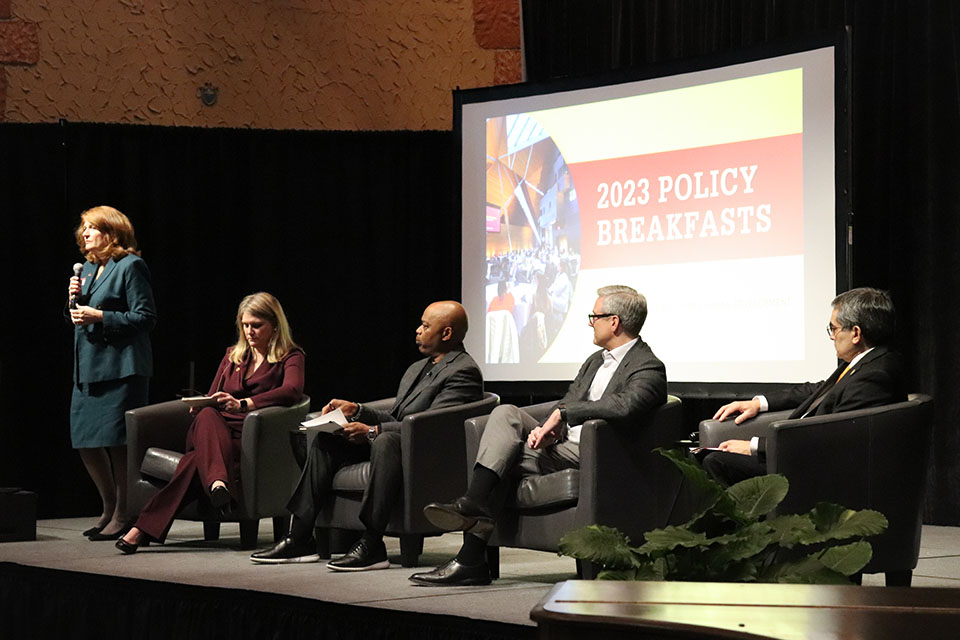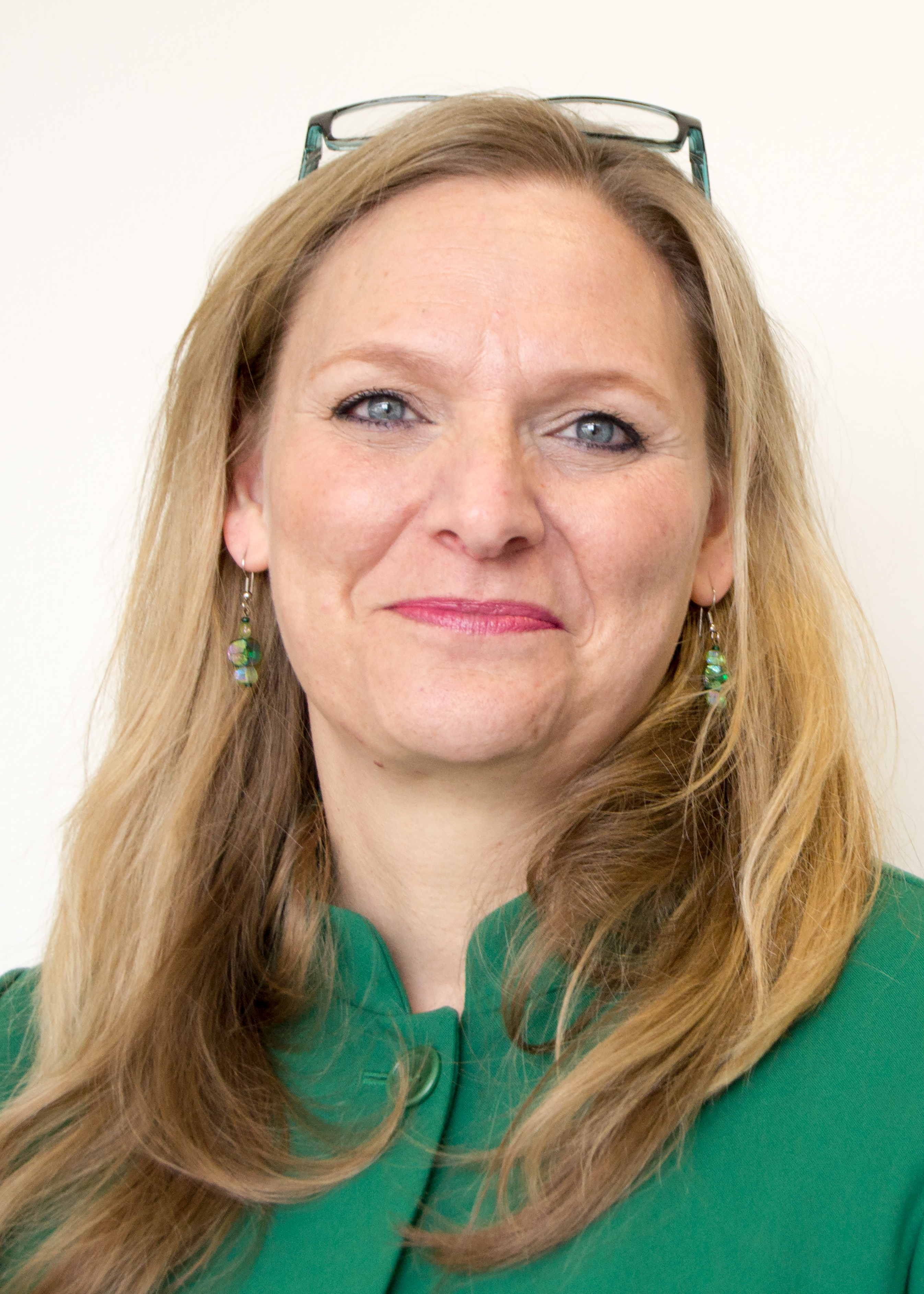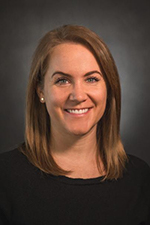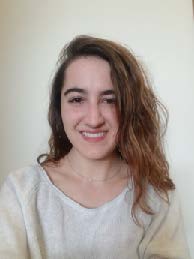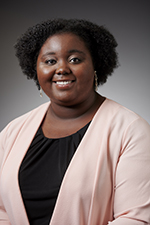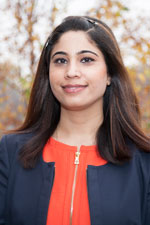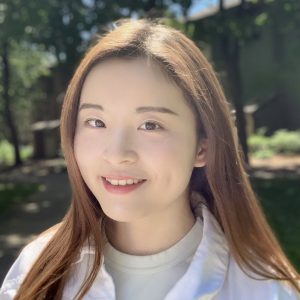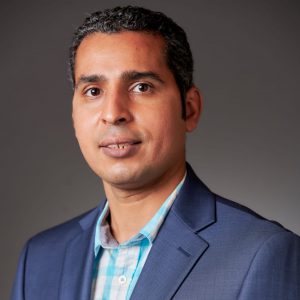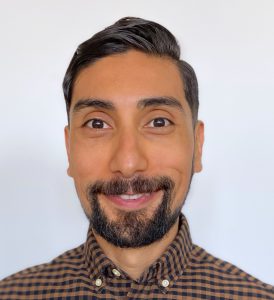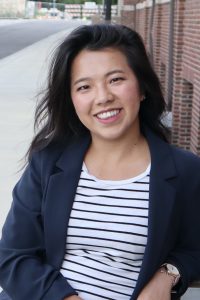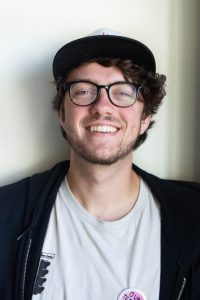The University of Minnesota’s College of Education and Human Development (CEHD) today announced it has been awarded a $1,155,000 grant from the Shakopee Mdewakanton Sioux Community (SMSC) to develop and offer an Indigenous Education for All online course free to the public. Read more.
CEHD hosts Policy Breakfast on Transforming the Principalship
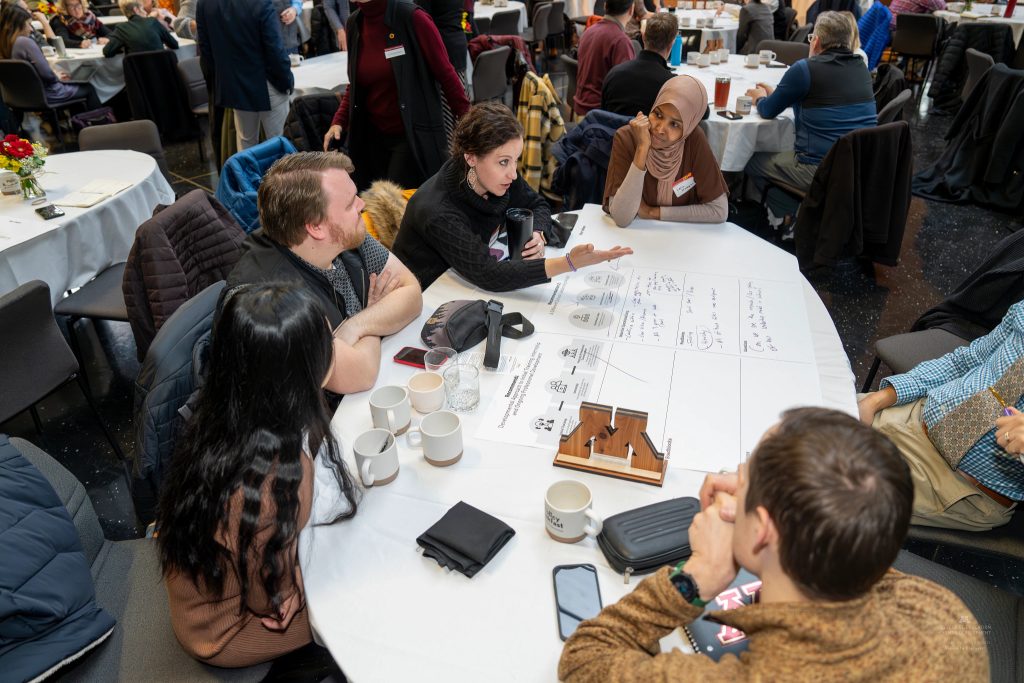
Attendees discuss transforming the principalship at the January Policy Breakfast. Check out more photos from the event.
On January 10, CEHD hosted roughly 200 educational leaders and policy makers for a Policy Breakfast at McNamara Alumni Center on the Minneapolis campus of the University of Minnesota.
Dean Michael C. Rodriguez welcomed attendees to the event, and Katie Pekel, CEHD’s Executive Director of Educational Leadership, shared preliminary results of the Minnesota Principals Survey and moderated a panel of experts, including:
- Minnesota State Representative Ben Bakeberg, principal, Jordan Middle School, Jordan Public Schools
- Cherise Ayers, principal, St. Paul Central High School, St. Paul Public Schools
- Maura Weyandt, principal, Edgerton Elementary, Roseville Public Schools
After the panel, participants engaged in discussion for future policy and practice recommendations for transforming the principalship. Their group work will be incorporated into the final results of the Minnesota Principals Survey. The survey, funded by the Joyce Foundation and the Minneapolis Foundation, will be released to the public later this spring.
“The fact that so many people came to discuss the principalship, its challenges and joys, is a testament to the importance of the job. We are fortunate to be able to gather, share and elevate principal voice through the Minnesota Principals Survey and events like this,” Pekel said.
Photos: Jairus Davis
Northern Lights receives Google Gift to develop Indigenous Computer Science curriculum
Northern Lights Collaborative for Computing Education in the College of Education and Human Development at the University of Minnesota was recently awarded a Google Gift to support the development of an Indigenous Computer Science (CS) curriculum unit incorporating Ojibwe and Dakota languages and cultures. The collaborative will provide up to 15 schools with significant Native American student populations with stipends to attend a workshop, implement the CS curriculum unit, and provide feedback to improve the materials.
The University of Minnesota was one of only three universities across the country to receive funding from Google to increase access and participation in CS for Indigenous students from K-12 through postsecondary.
“Representation of Native Americans in STEM fields like engineering and computer science continues to be the lowest of any demographic group. We have a long way to go until all students receive the same opportunities in computer science (CS). There is a need for more resources, teacher support, and culturally responsive and sustaining curriculum to close this equity gap,” said Northern Lights Collaborative Director Jennifer Rosato.
Northern Lights Collaborative for Computing Education develops evidence-based programs and resources in collaboration with educators and partners that support inclusive K-16 computing education. Visit the Northern Light’s website and follow them on LinkedIn to learn more about their work.
U of M’s new Northern Lights Collaborative to advance computing education in MN

The University of Minnesota announced that it will lead a new effort to advance computer science education across the state of Minnesota and nationally with the Northern Lights Collaborative for Computing Education.
Researchers in the collaborative, part of the University of Minnesota’s College of Education and Human Development (CEHD), aim to create a just and equitable society where computing education is universally accessible, inclusive, and responsive to the unique needs and aspirations of all learners and educators.
“Most people don’t realize that Minnesota is dead last in the state rankings for K-12 computing education. One of our main goals is to drive awareness and support for computer science education across Minnesota,” said Jennifer Rosato, director of the collaborative.
Northern Lights is part of a group partnering with Minnesota legislators on the Computer Science Education Advancement Act and the Minnesota Department of Education (MDE) on a state plan for Computer Science Education. The collaborative is preparing to help districts and schools implement the plan.
Northern Lights will provide critical support to schools in order to equip Minnesota’s students with the knowledge and skills they will need to be successful in our tech-enabled society. Data from MnTech’s State of the Tech Talent report in November, showed only 28% of Minnesota high schools offer foundational computer science education courses. In contrast, the national average is 58% with eight states, including Minnesota’s midwest neighbors North Dakota and Nebraska, now requiring computer science for graduation.
The collaborative will continue to pursue research funding with a focus on partnerships with educators in K-12 schools and institutions of higher education. Northern Lights recently was awarded a Google Gift to support the development of an Indigenous computer science curriculum unit specifically for Ojibwe and Dakota cultures. The collaborative also has received multiple grants from the National Science Foundation (NSF) and other funders, including an NSF grant to develop sustainable computer science education pathways in rural and tribal schools.
“Our goal is to conduct research for and with educators,” Rosato explained, “so they can implement research findings that are relevant for their classrooms.”
As part of its plan to improve access to, participation in, and outcomes for computer science education, Northern Lights provides K-12 curriculum and professional development, including for Advanced Placement (AP) and College in the Schools (CIS), which allow high school students to earn college credits. The collaborative also will build partnerships with community colleges and universities to help prepare marginalized students for in-demand, high wage careers in technology. Finally, Northern Lights will develop programs that prepare preservice and inservice teachers to teach computing.
According to MnTech, the median tech wage in Minnesota is $101,365, and the technology sector has a $36.1B per year impact and accounts for 7.7% of the state’s overall economy. The group’s report estimated 92,537 new technologists will be needed in Minnesota in the next 10 years.
“The Northern Lights Collaborative for Computing Education supports CEHD’s mission to contribute to a just future by increasing access to computing as a critical new literacy for Minnesota’s students. We are proud to be a part of this work,” said Dean Michael C. Rodriguez.
Follow Northern Lights Collaborative for Computing Education on LinkedIn.
CEHD hosts Policy Breakfast on accountability system for schools in Minnesota
On October 30, 2023, CEHD hosted more than 120 educational leaders and policy makers for a Policy Breakfast at the Historic Chateau Theatre in Rochester, Minnesota. University of Minnesota Chancellor Lori J. Carroll welcomed attendees to Rochester and the event.
Katie Pekel, CEHD’s Executive Director of Educational Leadership, moderated a panel of experts, including: CEHD Dean Michael C. Rodriguez, Minnesota Department of Education (MDE) Commissioner Willie Jett, and Superintendent of Rochester Public Schools Kent Pekel.
The panel discussed the current accountability system for schools in Minnesota, how it compares to other states’ systems, and what the future of accountability could look like as the state continues to strive for equity, justice, and improvement.
In Minnesota, the Minnesota Comprehensive Assessments (MCAs) measure the effectiveness of schools and districts relative to the state’s academic standards. However, individual scores are also reported to students and their families.
“We should stop reporting individual student scores and not send them home. The MCAs are not designed to provide diagnostically relevant measurement per student,” argued Dean Rodriguez.
When asked what an ideal state accountability system would look like, Rodriguez suggested that performance assessments, while difficult to carry out reliably, could help shine a light on student thinking, uncovering the deeper learning that occurs in our schools. He said performance assessments done by teachers more readily uncover what students know and can do better than the current assessments do.
“The U.S. curriculum is a mile wide and an inch deep. I would like CEHD to attract students who are creative, critical thinkers who dig deeper. If you don’t dig deeper, you don’t make progress and innovate,” he said.
Superintendent Pekel proposed that Minnesota should also look at what’s going well.
“We should not only be identifying the schools at the bottom of the MCA distribution but also the schools that are making the most improvement,” he said. “This would help us shine a light on the high performers and learn from them.”
The panelists also discussed the READ (Reading to Ensure Academic Development) Act, a $70 million investment by the state of Minnesota to provide teachers and instructional support staff with resources and professional development to teach reading based on evidence-based reading instruction approved by MDE.
“Being able to read well is a conduit for academic success. The READ Act helps students throughout their academic journey,” said MDE Commissioner Jett.
Policy Breakfast in the media
CEHD aspiring teachers talk with MDE Commissioner Willie Jett
On April 5, 2023, aspiring teachers from the DirecTrack to Teaching and Elementary Education Foundations programs in the Department of Curriculum and Instruction sat down with Minnesota Department of Education (MDE) Commissioner Willie Jett to talk about what supports they need as they head into the teaching profession. Jehanne Beaton, PhD, DirecTrack to Teaching coordinator, supported students in this effort.
This event was sponsored by the Department of Curriculum and Instruction’s DirecTrack to Teaching program as well as the College of Education and Human Development (CEHD).
Commissioner Jett is a two-time CEHD alum, having completed both the K-12 Principal Administrative Licensure Program (2001) and Superintendent Licensure (2011) programs in the Department of Organizational Leadership, Policy, and Development.
Call for applications: 2022-23 Tri-Psych Graduate Student Diversity Fund
Application deadline: January 20, 2023
The Tri-Psychology Programs—Educational Psychology, Psychology, and Institute of Child Development—at the University of Minnesota are deeply committed to supporting underrepresented students in the psychological sciences. Together, we strive to create welcoming, affirming, and inclusive spaces and seek to foster respectful exchanges of ideas that allow us to embrace the power of diversity of perspectives and backgrounds to enrich our departments, our University, and the field of psychology.
Applications are now open for the 2022-23 Tri-Psych Graduate Student Diversity Fund. The goal of this award is to build community and facilitate cross-departmental collaborations among BIPOC (Black, Indigenous, and People of Color) students in Tri-Psych departments and/or student groups otherwise underrepresented in postsecondary education. We seek innovative proposals from graduate students that provide opportunities to encourage and support your fellow students, gain insights from your shared and differing experiences, and build stronger relationships across the three Tri-Psych departments.
Award detail
- Proposals must be collaborative and must clearly benefit all three departments.
- Proposals must focus on BIPOC students and/or student groups otherwise underrepresented in postsecondary education across all three host psychology programs.
- Preference for creative ideas that show promise for building long-term support structures for BIPOC students and/or student groups otherwise underrepresented in postsecondary education.
- Awards will be made to teams of at least two or more graduate students; preference for teams that include collaborators across at least two of the Tri-Psych departments.
- A summary of the completed project must be submitted by December 1, 2023.
- Proposals will be reviewed up until January 20, 2023.
One large award ($2,500 max) and 3-5 small awards (up to $1,000 each) will be made:
Large award: must include collaborators across all three Tri-Psych departments.
Small awards: preference for teams that include collaborators across at least two of the Tri-Psych departments.
If you have questions about your application, please contact the individual associated with your department to learn more:
- Jessie Kember (Educational Psychology) at kembe007@umn.edu
- Moin Syed (Psychology) at moin@umn.edu
- Gail Ferguson (Institute of Child Development) at gmfergus@umn.edu
Have an idea for a Tri-Psych Award Proposal?
Share, connect, and collaborate!
Since proposals must be collaborative (minimum of two students) and benefit all three departments, we’ve created a virtual space (or shark tank!) to share your ideas, connect with other graduate students, and build your proposal together.
Interested in applying for the Tri Psych award? Follow these simple steps:
- October and November: Use the virtual space to post an idea that you have for the award proposal.
- October, November, and December: Access the virtual space to learn about other ideas folks have shared.
- November and December: Connect with individuals with similar interests, or ideas that resonate with you. Be sure to connect with folks outside of your department.
- December and January: Collaborate as a team to complete the application. Submit the application by January 20, 2023.
In your post, please include the following information:
- Tell us about yourself.
- A brief description of your proposal idea.
- What are the intended outcomes of your proposal idea?
- Your contact information
You are welcome to share your ideas in any format (e.g., text, video, audio, powerpoint, etc.).
Ed Psych hosts Inaugural Stan Deno Lecture & Panel Discussion
On September 15, 2022, the Department of Educational Psychology hosted the Inaugural Stan Deno Lecture & Panel Discussion. The conference honored the work of the late Stan Deno, a pioneer in the field of special education and the founder of Curriculum-Based Measurement (CBM) and co-founder (with Phyllis Mirkin) of Decision-Based Individualization (DBI). Deno was an emeritus faculty member in the department until his passing in 2016.
Lynn Fuchs and Doug Fuchs, both professors of special education at Vanderbilt University and Institute Fellows at American Institutes of Research, delivered the keynote, “What We Know and Still Need to Learn about Curriculum-Based Measurement (CBM) and Data-Based Individualization (DBI).” (Watch a replay of their talk, and view the presentation slides.) CBM is a fast, easy way for teachers to measure student achievement as often as once a week and adjust teaching to help students progress.* Data-based individualization (DBI) is the systematic use of assessment data to monitor student progress and provide intensified interventions.* The researchers described CBM and DBI as two closely connected processes and—throughout their talk—demonstrated how the biggest improvements in student achievement occur when teachers engage both.
Later, a panel of researchers discussed the applications of data-based decision-making to current research, policy, and practice to meet the needs of diverse learners. While Dr. Lynn Fuchs and Dr. Doug Fuchs’ talk focused on students with disabilities, the panel extended the discussion around DBI into multi-tiered systems of support (MTSS) and general education as well.
Panelists included:
- Kim Gibbons, PhD, director of the Center for Research and Educational Improvement (CAREI)
- Kristi Baker Patterson, PhD, director of curriculum and instruction for ALLMemphis
- David Parker, PhD, vice president of research and assessment at ServeMinnesota
The conference was sponsored by the National Center for Leadership in Intensive Intervention (NCLii), Renaissance Learning, and the University of Minnesota’s Stan Deno Fund. Donate to the Stan Deno Fund.
Applications now open: 2022 Virtual Diversity in Psychology Program
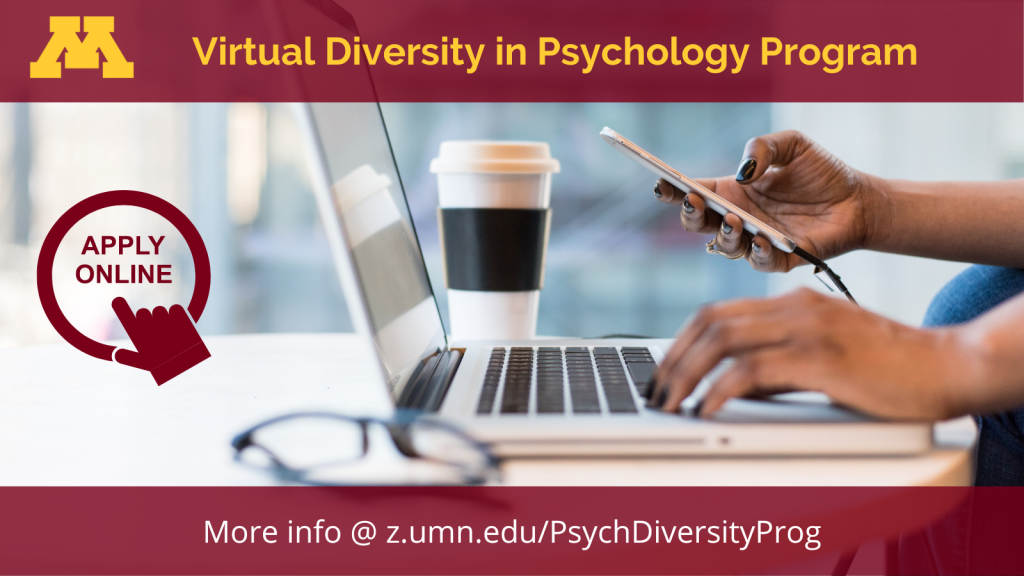
The Department of Educational Psychology and Institute of Child Development are pleased to support the 6th Annual Diversity in Psychology Program at the University of Minnesota (UMN), which will take place virtually November 4, 2022.
The program is sponsored by the UMN Department of Psychology and the College of Liberal Arts with support from ICD and the Department of Educational Psychology in the College of Education and Human Development.
The Diversity in Psychology Program is designed for individuals who are historically underrepresented in psychology graduate programs and who are interested in earning their PhD in psychology, developmental psychology, and educational/school psychology at the University of Minnesota.
As a participant in the program, you will learn, through formal and informal experiences, how to construct a successful graduate school application. You’ll also have the opportunity to get a sense of the graduate school experience in our departments.
If you are interested in applying for the Diversity in Psychology Program (or know someone who might be), please visit: z.umn.edu/PsychDiversityProg.
Applicants must provide the following information and materials by Wednesday, August 31 (5 p.m., CST):
- A completed online application form at z.umn.edu/PsychDiversityProgApp As part of the application, you will need to upload the following documents as a PDF:
- A narrative statement describing your interests, background in psychology, and educational/career objectives.
- Copy of undergraduate transcript (an unofficial copy will suffice).
- Curriculum vitae or résumé.
Please share this announcement with those who might be interested, and distribute it widely, to help get the word out about the 2022 Diversity in Psychology Program Virtual Event!
Direct any questions about the Diversity in Psychology Program to psyapply@umn.edu.
Sponsored by the Department of Psychology and College of Liberal Arts, in collaboration with the Institute of Child Development and the Department of Educational Psychology.
Ed Psych faculty, students present at ABAI 2022
Four members of the Department of Educational Psychology presented six times at the Association for Behavior Analysis International (ABAI) in May 28-30, 2022 in Boston, Massachusetts.
Professor Jennifer McComas was invited to present a symposium on “Dismantling Ableism in Your Practice” as well as a workshop on “Acceptance and Commitment Training for Applied Behavior Analysts: This is Great, But How Would I Do This?” She also presented her paper, “Brief Acceptance and Commitment Training Functional Analysis for Graduate Students: Controlling for Sensitivity, Specificity, Discriminant, and Predictive Utility.”1 Another paper presented by a co-author was, “Preference for High- and Low-Tech Augmentative and Alternative Communication and Modalities: A Review of the Literature and Current Outcome Data.”2 Professor McComas is the program lead for the master’s in special education with an emphasis in applied behavior analysis program and lab director of the Collaborative Action for Radical Equity in Applied Behavior Analysis Lab (CARE ABA Lab).
Shawn Girtler, PhD student in the special education program, presented her paper, “Using Behavior Skills Training to Promote Caregivers’ Generalized Skill Instruction With Adults With Intellectual and Developmental Disorders.”3
Emily Unholz-Bowden, PhD student in the special education program, presented her paper, “Using Behavior Skills Training to Promote Caregivers’ Generalized Skill Instruction With Adults With Intellectual and Developmental Disorders.”4
Alexandria Robers, alumni of the special education MA with an emphasis in ABA program and PhD candidate in the school psychology program, presented her poster, “Using Behavior Skills Training to Promote Caregivers’ Generalized Skill Instruction With Adults With Intellectual and Developmental Disorders.”5
- JENNIFER J. MCCOMAS (University of Minnesota), Thomas G. Szabo (Touro University), Yukie Kurumiya (The Chicago School of Professional Psychology)
- ALEX PAULS (University of Iowa), Matthew O’Brien (The University of Iowa), Joel Eric Ringdahl (University of Georgia), Kelly M. Schieltz (University of Iowa), Jennifer J. McComas (University of Minnesota)
- SHAWN NICOLE GIRTLER (University of Minnesota), Jennifer J. McComas (University of Minnesota)
- EMILY KATRINA UNHOLZ-BOWDEN (University of Minnesota), Jennifer J. McComas (University of Minnesota), Rebecca Kolb (University of Minnesota )
- ALEXANDRIA C. ROBERS (University of Minnesota), Bethany Schwandt (Ball State University), Jennifer J. McComas (University of Minnesota)
Kohli named editor of Psychometrika’s ARCS section
Nidhi Kohli, American Guidance Service, Inc. and John P. Yackel Professor of Educational Measurement and Assessment and program coordinator in the Department of Educational Psychology’s quantitative methods in education program, has been selected as the next editor for the Application Reviews and Case Studies (ARCS) section of the journal, Psychometrika.
According to Dr. Kohli, “The ARCS section is committed to highlighting the indispensable connection between data analysis and modelling methodology and its application to data in psychology, education, and related areas in the social sciences.”
Dr. Kohli will begin her editorship in January 2023.
IEMP Lab summer 2022 student internships
Three students in the Improving Educational Measurement Practice (IEMP) Lab—directed by Assistant Professor Joseph Rios—have earned internships for summer 2022. All three are PhD students in the Department of Educational Psychology’s quantitative methods in education (QME) program.
Jiayi Deng (second year PhD student in QME) will be working as a psychometric intern and research associate at the Human Resources Research Organization (HumRRO) for three months in the summer of 2022. In the Louisville, KY office, she will be assigned to the Validity Investigation for Education and the Workplace (VIEW) program. Her responsibilities will include performing literature reviews; assisting in developing surveys, testing, training, and data collection materials; collecting data; performing qualitative and basic descriptive and multivariate statistical analyses; and assisting in developing proposals to secure new research contracts. She believes this internship opportunity will provide her with an opportunity to leverage her skills and experiences to assist in solving real-world problems. These operational insights will also greatly direct her future research in this field.
Mohammed Abulela (third year PhD student in QME) has recently been offered a two-month summer internship from the National Board of Medical Examiners (NBME) located in Philadelphia, PA. During his time with NBME, he will be working mainly on a predictive validity project. Specifically, he will collaboratively work with other senior psychometricians to collect predictive validity evidence for the United States Medical License Examination (USMLE), which has three steps and must be taken by all medical school students across the
nation. He is so excited about this opportunity to diversify his experience and enhance his skill set. He also expects that this project will be a very useful applied learning opportunity to transfer his knowledge and skills in the field of medical testing.
Samuel Ihlenfeldt (fourth year PhD student in QME) has been awarded a remote summer internship at Pearson with the Clinical Assessment Division. In his role, he will working on the development of the AimsWeb+ assessment, aiding to prepare the Winter and Spring forms while the test moves from linear to computer adaptive.
2022-2023 Ed Psych scholarship and fellowship recipients
Department of Educational Psychology MA and PhD students across our five programs have been awarded scholarships and fellowships to pursue their graduate studies during the 2022-23 academic year. Congratulations to all of our deserving recipients!
Bruininks-Hagstrum Endowed Fellowship Fund
Alexandria Robers, school psychology
CEHD Common Ground Consortium Fellowship
Mya Urena, incoming psychological foundations of education student
CEHD Hauge Fellowship
Jiayi Deng, quantitative methods in education
Doctoral Dissertation Fellowship (DDF)
Ashley Hufnagle, psychological foundations of education
Interdisciplinary Doctoral Fellowship
Caroline Roberts, special education
Russell W. Burris Memorial Fellowship in Educational Psychology
Ashley Hufnagle, psychological foundations of education
The Russell W. Burris Memorial Fellowship was established in memory of Russell Burris, professor emeritus of educational psychology. Dr. Burris studied what and how we learn, in particular “expertness,” focusing on areas that included trial advocacy, clinical medicine, and art history.
Visit the University of Minnesota Foundation’s website to support students, like Alexandria, by donating to the Russell W. Burris Memorial Fellowship in Educational Psychology.
Seashore Graduate Fellowship
Alexandria Robers, school psychology
Rios appointed to ACT technical advisory committee
Joseph Rios, assistant professor in the Department of Educational Psychology’s quantitative methods in education (QME) program, has been appointed to the ACT (American College Test) technical advisory committee. In this role, Dr. Rios will not only provide psychometric expertise but also deliver guidance related to diversity, equity, and inclusion issues in college admissions testing.
Dr. Rios’ experience on the technical advisory committee has influenced a proposed conceptual framework for making ethical decisions related to college admissions, which he delivered at the recent NCME conference in San Diego, “College Admissions Testing in the Land of Babel.”
QME recognizes students in year end celebration
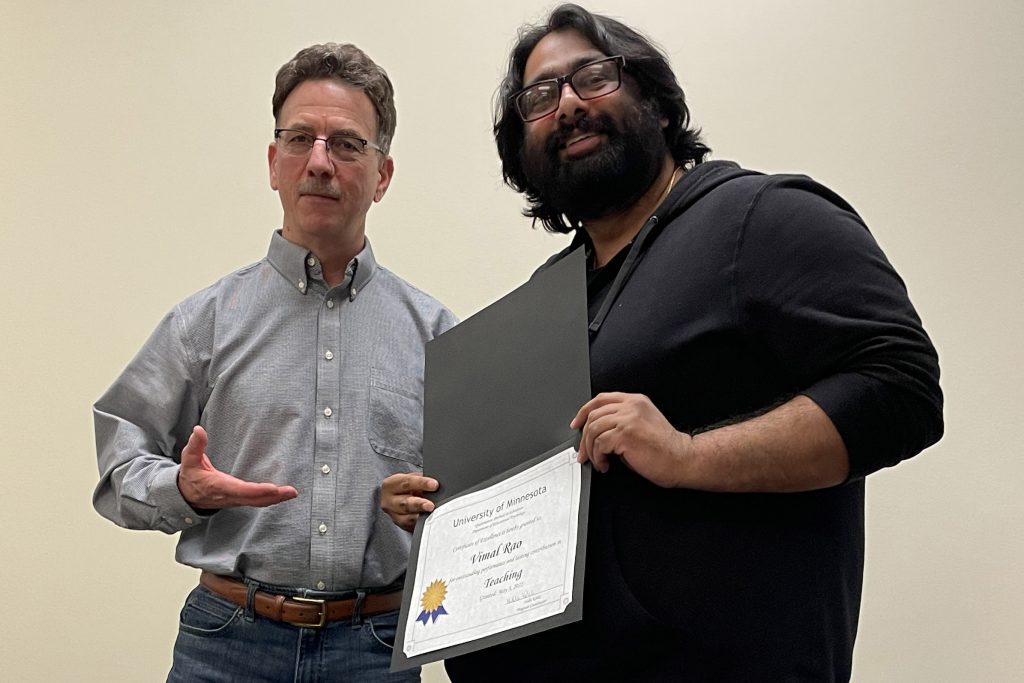
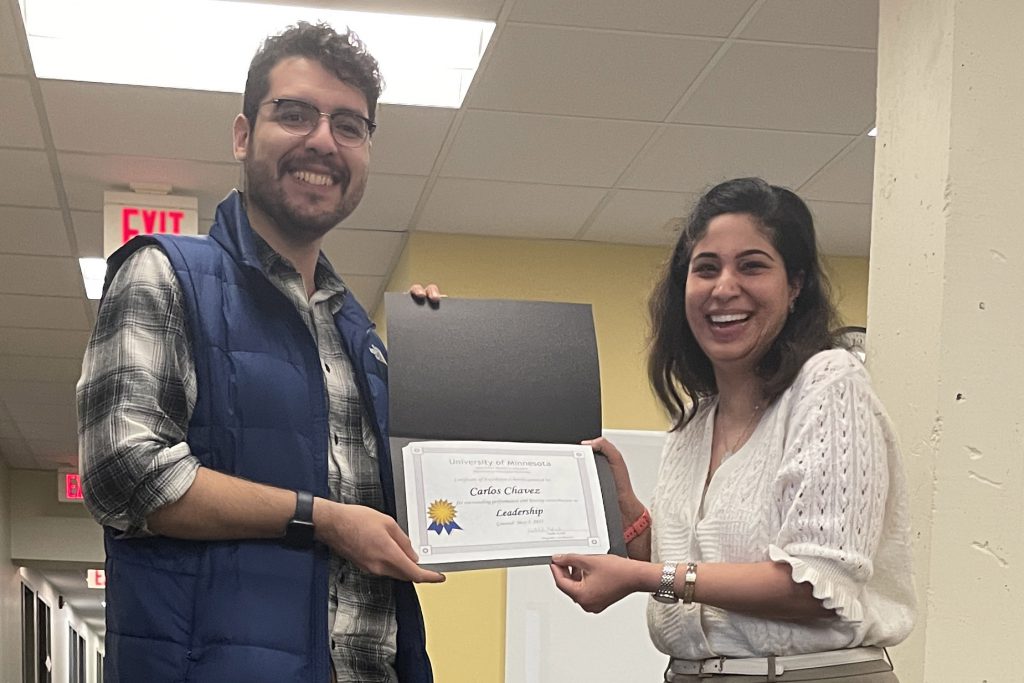
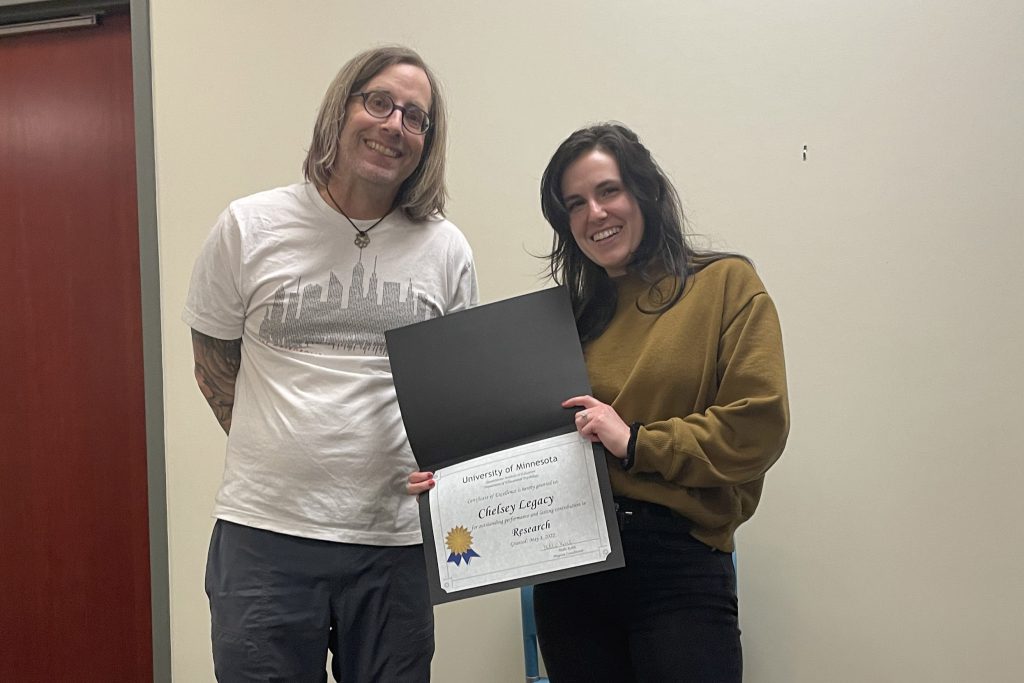
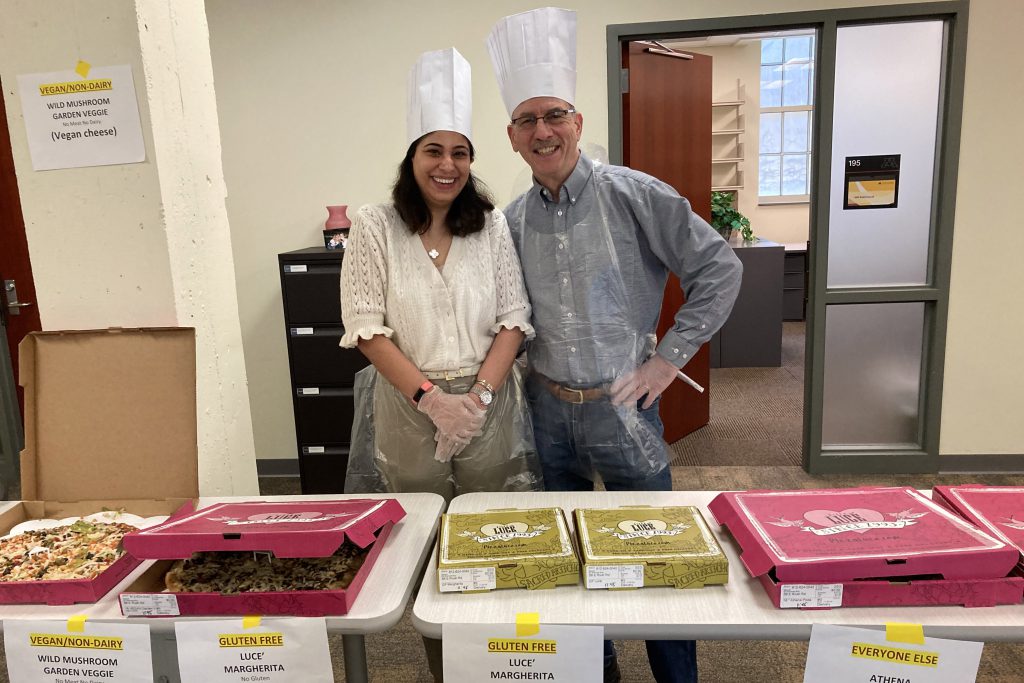
Students in the Department of Educational Psychology’s quantitative methods in education (QME) program were recognized for their contributions to the program during the 2021-22 academic year on April 3. PhD student award winners included:
- Teaching: Vimal Rao
- Service: Carlos Chavez
- Research: Chelsey Legacy
Congratulations to all of our QME faculty, staff, and students for an excellent year!
Three Ed Psych department members honored at CEHD Spring Assembly

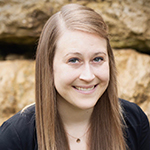
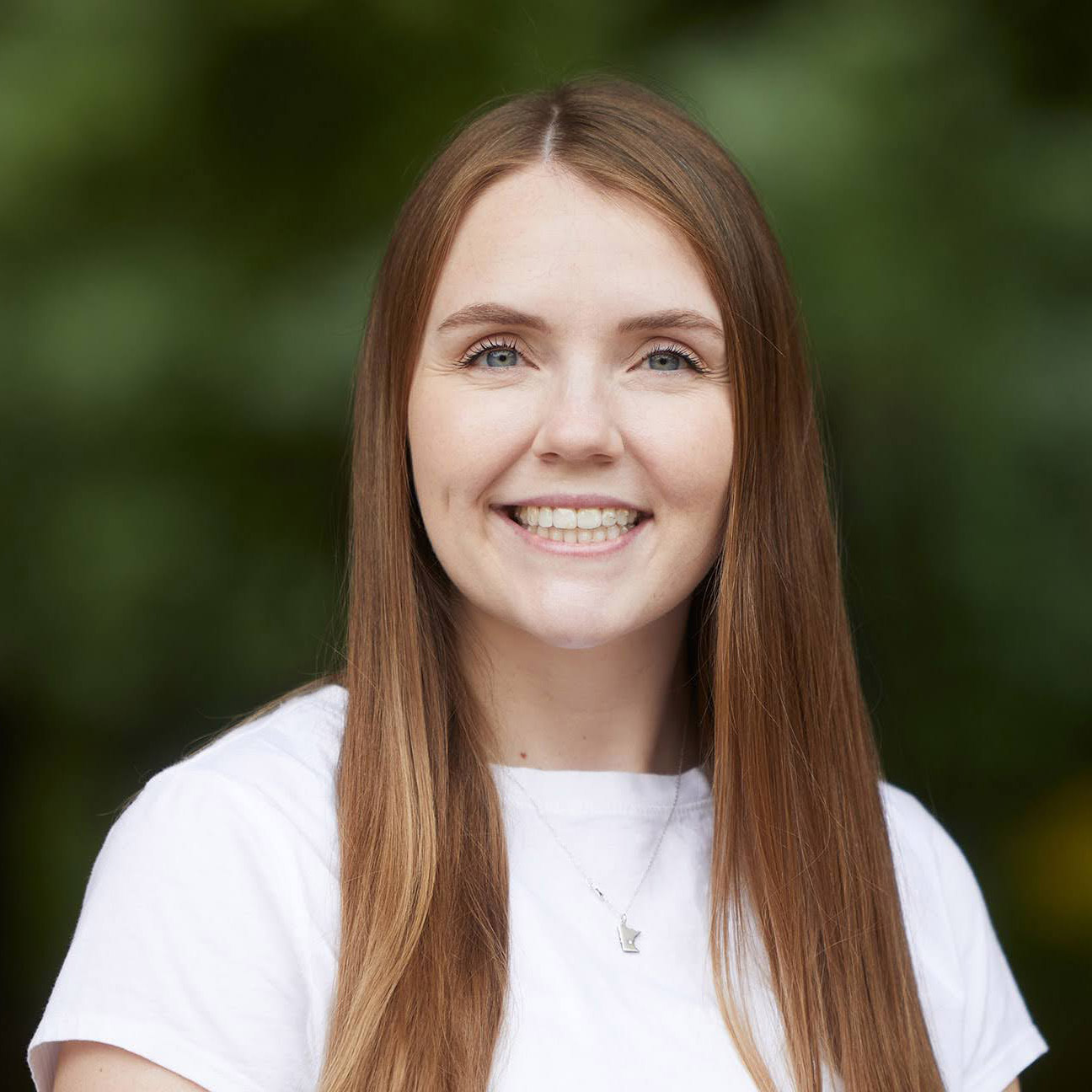
Three members of the Department of Educational Psychology, two faculty and one PhD student, received awards during the 2022 CEHD Spring Assembly on April 27.
Andrew Zieffler, PhD, senior lecturer in the quantitative methods in education program, was honored with the Distinguished Teaching Award (P&A instructional). In their nomination letter, Dr Zieffler’s former students shared what makes him deserving of the recognition.
“As former advisees, we had the privilege to grow as teachers, researchers, and members of the academic community under Dr. Zieffler’s authentically involved support and guidance. His approach went above and beyond the requirements for his job description and reflected a genuine desire to support and collaborate as a mentor and colleague. We know that we are academically, professionally, and personally lucky to have Dr. Zieffler as our teacher/adviser/mentor, and that his impact extends to countless more students.”
Jessie Kember, PhD—lecturer, fieldwork coordinator, and director of clinical placements in the school psychology program, as well as, chair of the department’s Diversity Committee—received the Outstanding P&A Achievement Award. Dr. Kember’s students reflected on what makes her a great instructor and leader in their recommendation.
“Dr. Kember is a rare combination of initiative and warmth; she is a firebrand for change and a truly kind individual who cares about others and wants to see them succeed. All of these qualities and more highlight Professor Kember’s strengths as an exceptional educator, P & A staff member, and all-around human being.”
Shelby Weisen, a PhD student in the psychological foundations of education program, was recognized with the Outstanding Student Worker Award. Weisen’s recommendation had the support of many faculty and students (shown in this video). In his nomination letter, Martin Van Boekel, a faculty member in Weisen’s program, described the dedication she has shown to the department.
“When COVID took over our campus, the head of the department (Kristen McMaster) asked Shelby to
work closely with me to help redesign these classes in a manner that supports students through this
difficult time. This is a very big ask of a student so early in their graduate program, but this is the level of
trust we place in Shelby… In the wake of George Floyd’s murder, the university (and world) reacted. Shelby was active in supporting students and faculty. She joined every committee created by our program and department (as previously mentioned the Anti-racist Action Council, Student Diversity Committee) related to addressing racism and prejudice in our university. Not only that, she took the lead in creating a student focused social justice book club…. Whenever I hear about a new initiative or project in the department that aims to support students, Shelby is likely involved.”
Congratulations to all of our award winners!
Special ed PhD student wins first place in CEHD 3MT competition
Pang Chaxiong, PhD student in the special education program in the Department of Educational Psychology, came in first during the final round of the CEHD Three-Minute Thesis (3MT) on March 24. Chaxiong presented an abbreviated version of her dissertation, “How can we enable Hmong parents to take steps towards autism identification?: Hmong parents beliefs about autism and their experiences in the identification process.”
In the fall, Chaxiong will go on the University-wide 3MT competition where the winner will move on to the national competition.
Congratulations and best wishes to Pang Chaxiong!
Ed Psych gathers to celebrate grad students during GSAW
Department of Educational Psychology faculty, staff and students gathered on Friday, April 8 to recognize the contributions of our graduate students during Graduate Student Appreciation Week (GSAW). Check out pictures from the event below! (Click on the first photo to view larger image gallery.)
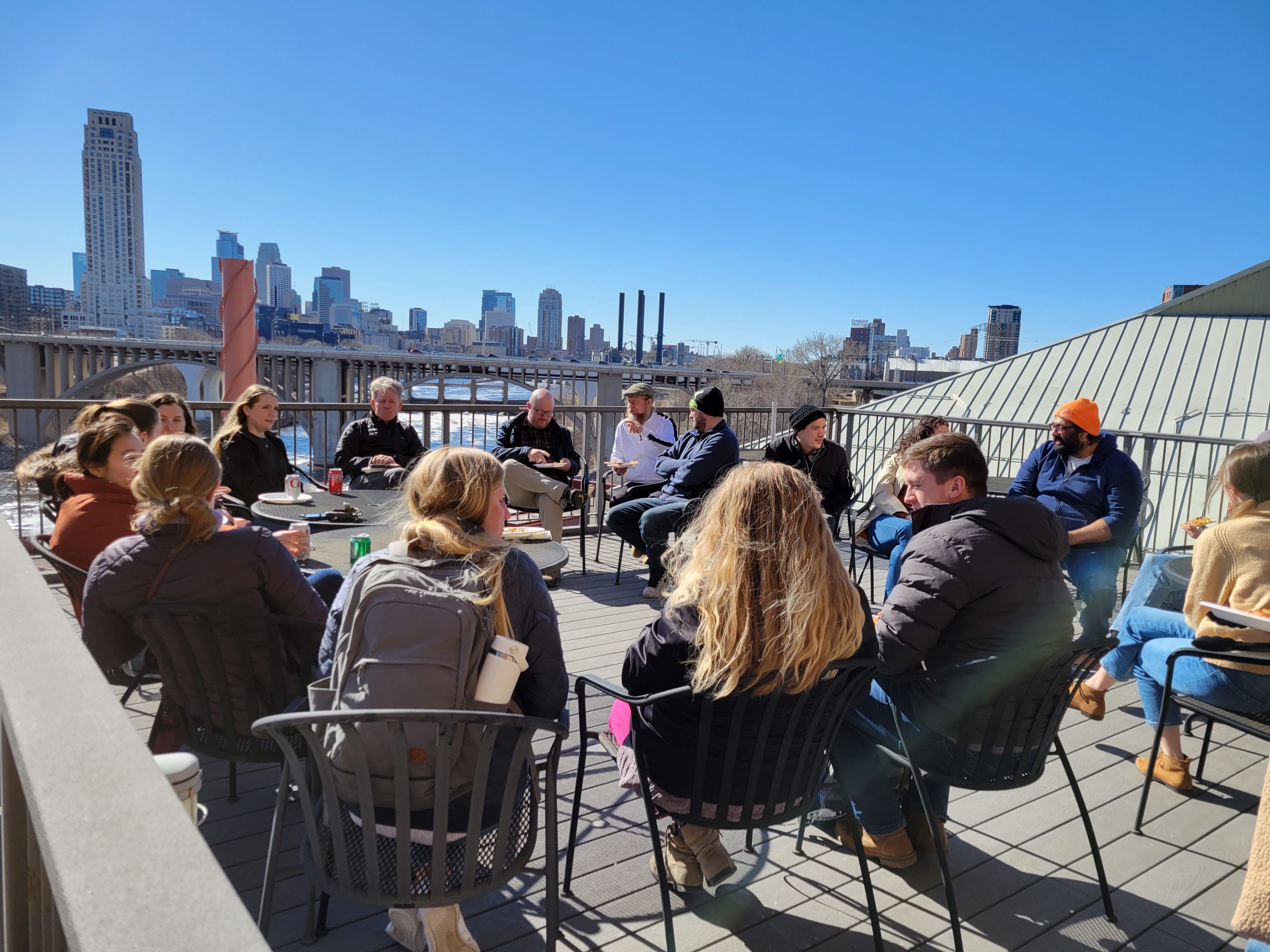
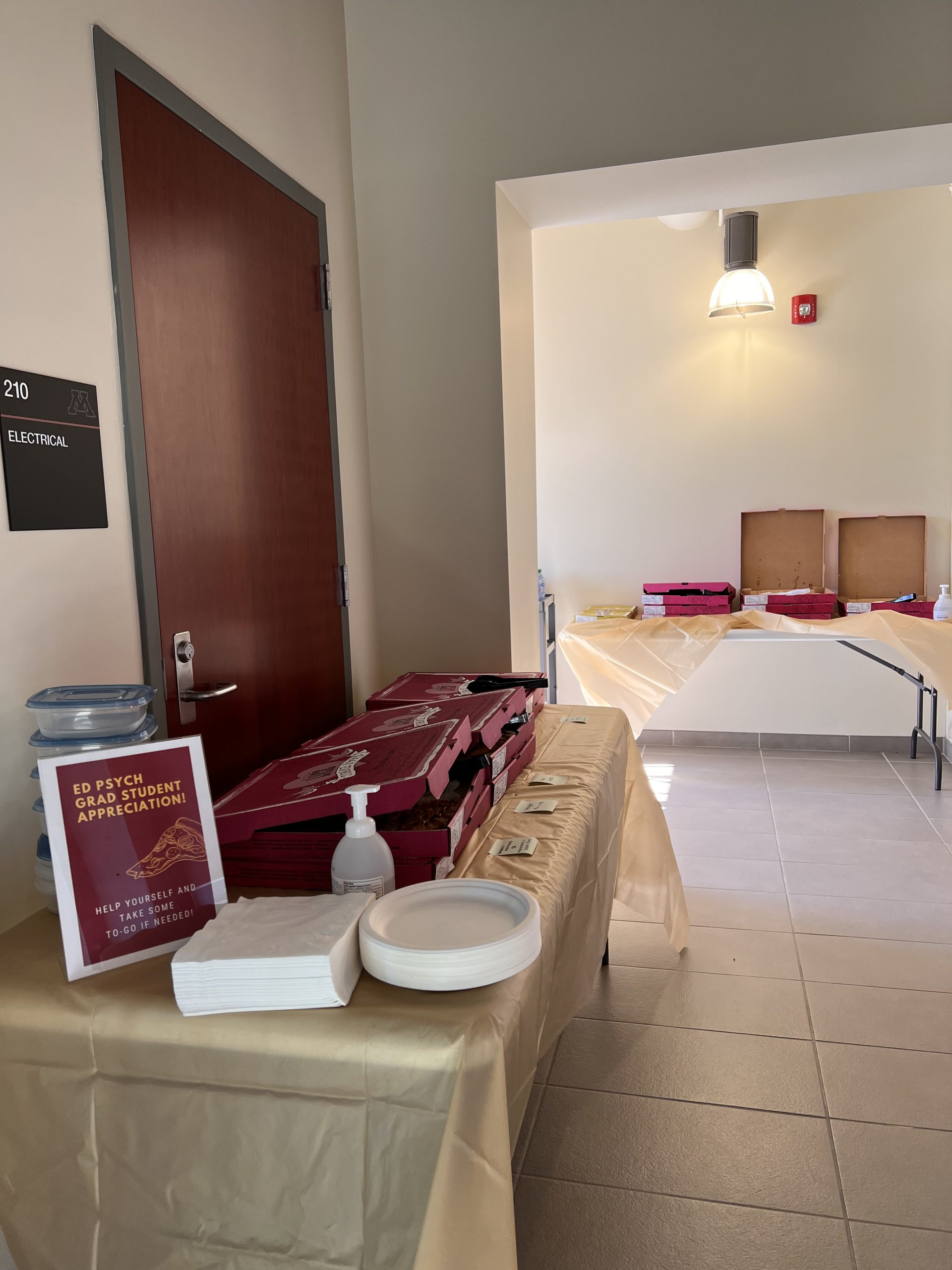
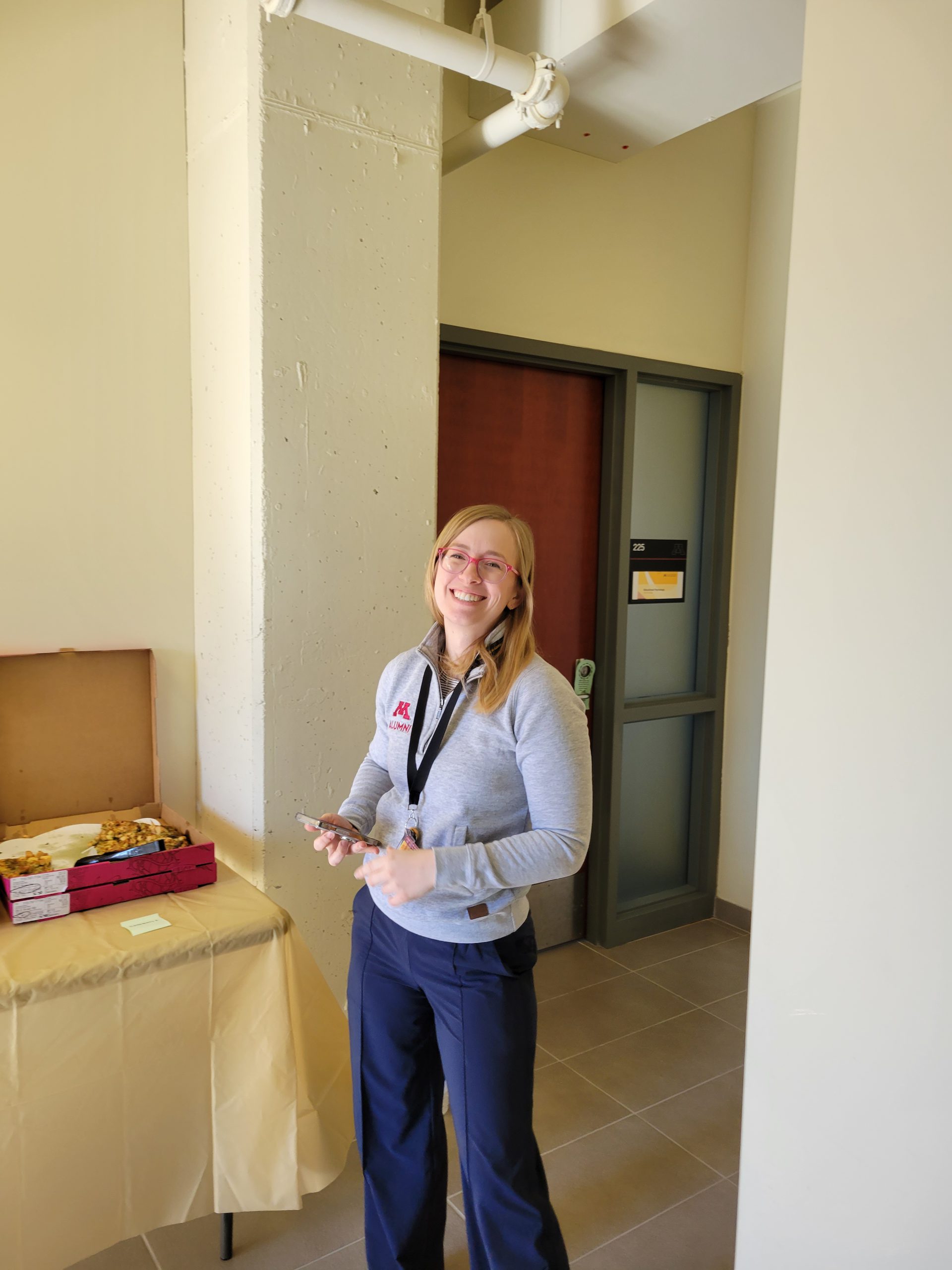
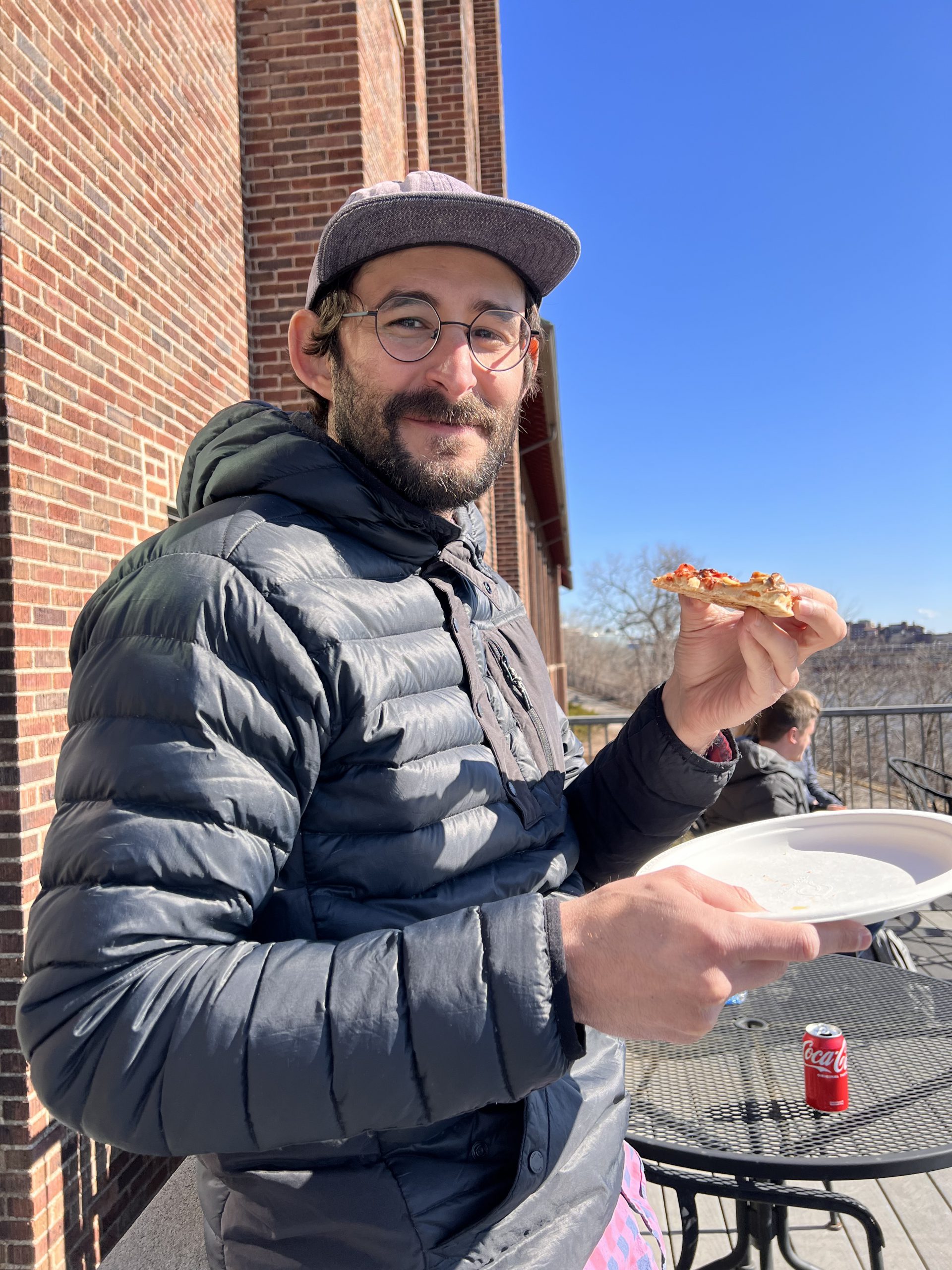
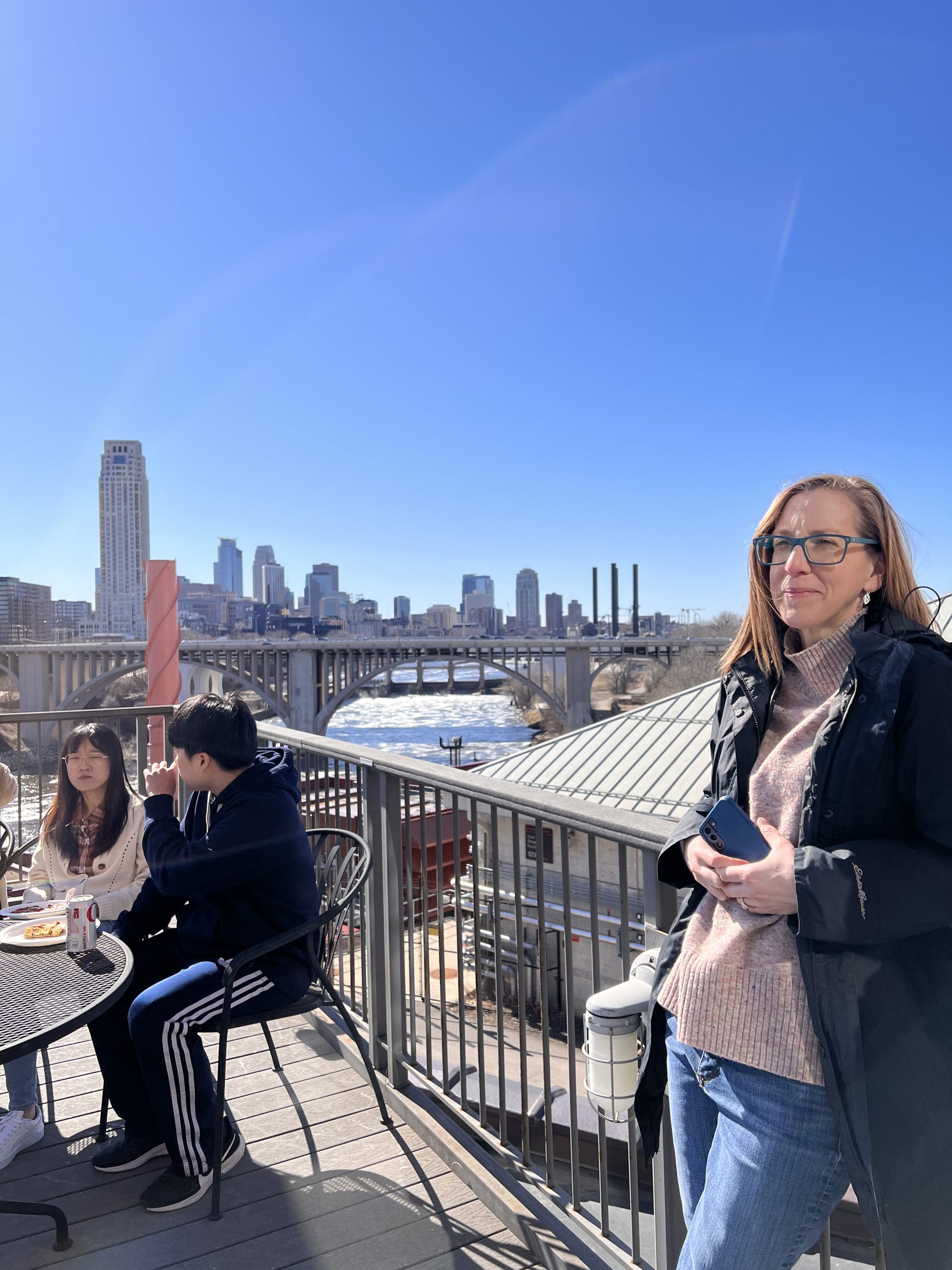
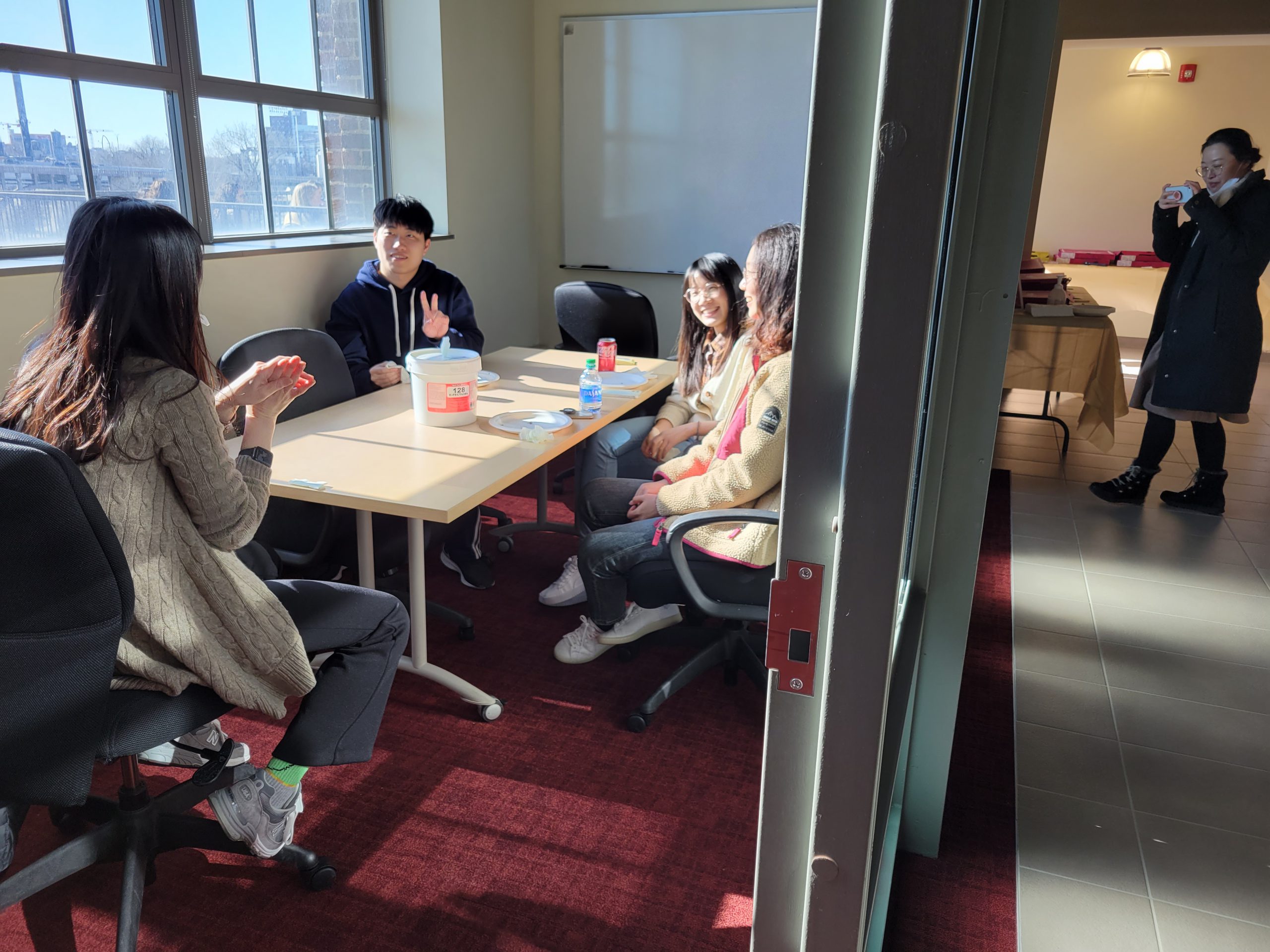
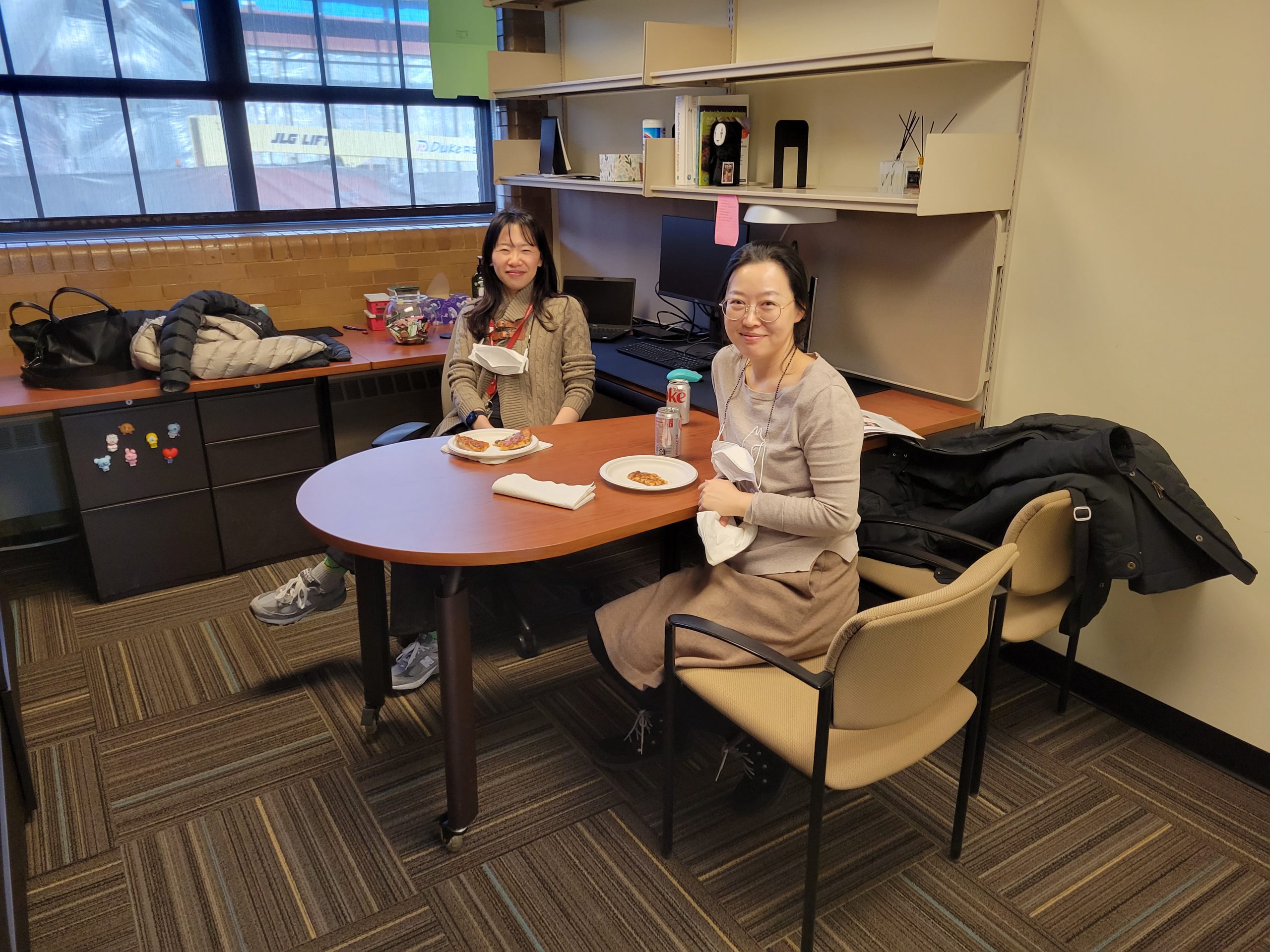

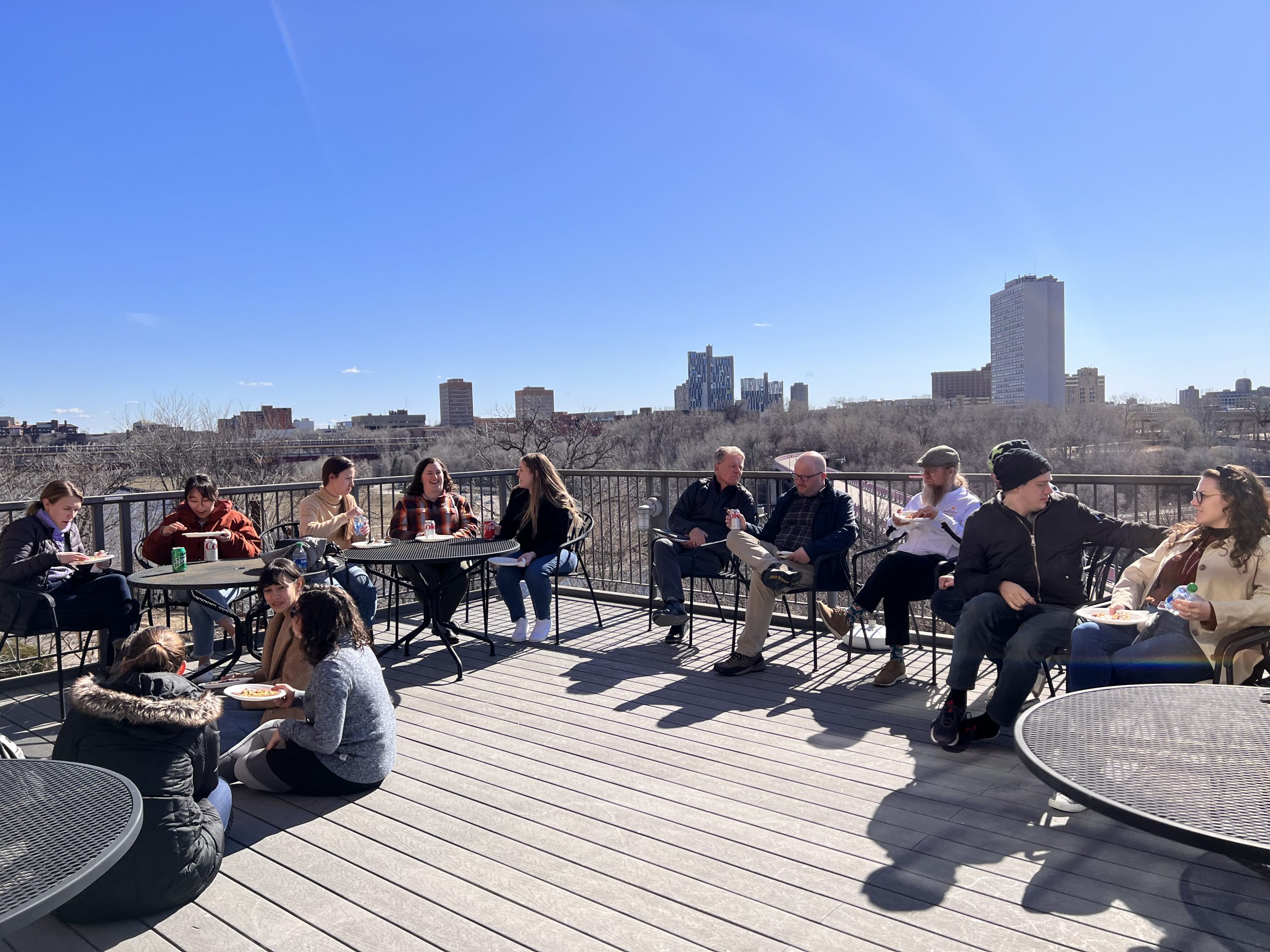
QME PhD student awarded 2022 NCME Mission Fund grant
Sam Ihlenfeldt, a doctoral student in the Department of Educational Psychology’s quantitative methods in education (QME) program, has been awarded a National Council of Measurement in Education (NCME) Mission Fund grant for his research project, “Using Experimental Methods to Evaluate Score Reports Adapted for English Learner Parents.”
The NCME Mission Fund was established to provide a means for donors to express their tangible support for NCME’s mission to advance the science and practice of measurement in education, and to provide individuals and organizations with financial support for projects and research that address this mission directly.
This year’s Mission Fund grants were awarded for initiatives focusing on fairness, equity, and social justice in assessment.
Ihlenfeldt’s faculty advisor, Assistant Professor Joseph Rios, explained why his work is important for the Department of Educational Psychology and the field of educational measurement.
“In Sam’s time within the QME program, he has grown to become an independent thinker dedicated to conducting research on increasing inclusivity in educational measurement, which is at the heart of the department’s social justice mission. It is truly exciting to see that the national organization for measurement specialists has taken notice of his work on improving score reporting practices for English learner parents. The findings from Sam’s research have the potential to inform practitioners with concrete recommendations on how to increase accessibility to assessment results for this often marginalized population.”
Special ed hosts talks on ‘Supporting Linguistic Diversity in Education’
Please join the Department of Educational Psychology’s special education program faculty and our cohort of second-year doctoral students as we host a four-part series of talks in April on supporting linguistic diversity in education.
For more information on this year’s speakers, visit the special education talks webpage.

